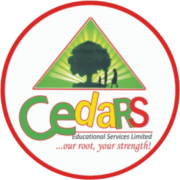Elementary



The Elementary Program- 5years To 11years
The elementary school child occupies what Maria Montessori called the “second plane of development.” Children at this stage are in a period of rapid intellectual growth as they develop the ability for rational thinking. Children want to know the how and why of things. Through exploration and experimentation, they discover the quantities and facts of the world. Self-education is the mode through which the elementary children learn most effectively. The teacher’s role is to provide and support children in this all important endeavor.
Dr. Montessori developed what she called the “cosmic curriculum” for this educational level. In the cosmic curriculum, children discover the history of the world and of the human race, and in this process, begin to define their own place in the life of human kind and of nature. Sequentially, all things are naturally related to the creation of the universe and our earth. We encourage children to begin asking questions. Children pursue and research historical, scientific, artistic, and cultural interests. Information is gleaned from a rich variety of literature, experiments, art projects, tapes, films and community field trips.
During the elementary years, children explore the academic world in increasing depth through the related disciplines of mathematics, reading, penmanship, creative writing, research methods, art, music, science, botany, zoology, anatomy, history, geography, social/cultural studies, drama, and physical education; all is taught as parts and contributions to the whole. Multi-age classrooms and a spirit of cooperation rather than competition, allow children to grow emotionally and intellectually at their own pace.
The Montessori elementary programs offer individualized instruction and evaluation. Students are grouped in a multi-age setting, ages 5-6, 6-9, 9-12, or 12-15, to allow for cognitive development without competition. Teachers evaluate the students’ work in an on-going basis and meet three times annually, each trimester, for a progress report with the parents. Parent-teacher
conferences detail the progress of the student in each subject area, as well as noting social and emotional growth. Each year, students take a yearly, standardized achievement test.
Quick Links
Contact Info
NEW SCHOOL ADDRESS:
33 Funsho Williams Ave, Oke Ira 101241, Surulere, Lagos, Nigeria.
Phone Number:
+2348091841231, +234 802 327 4870
Email:
info@cedarsworld.sch.ng, tcwmontessori@gmail.com, cedarsint@yahoo.com
©2023 Cedars World Schools
All rights reserved
